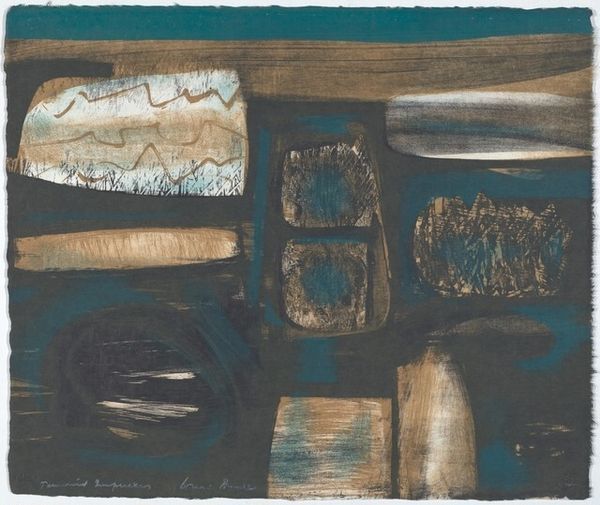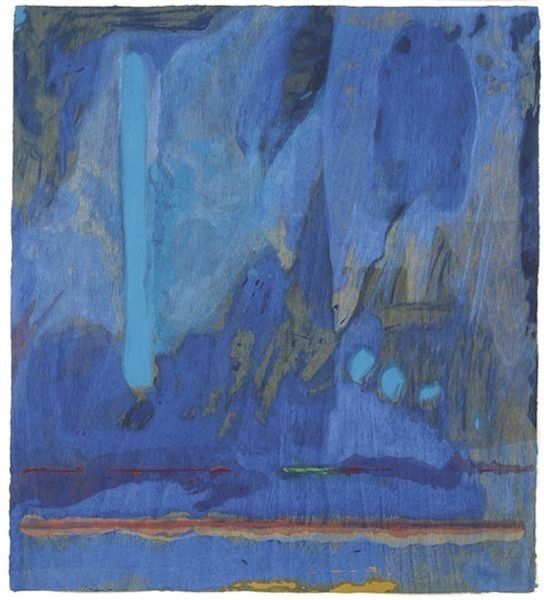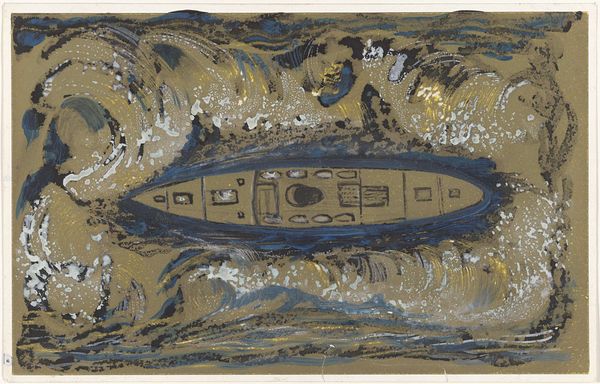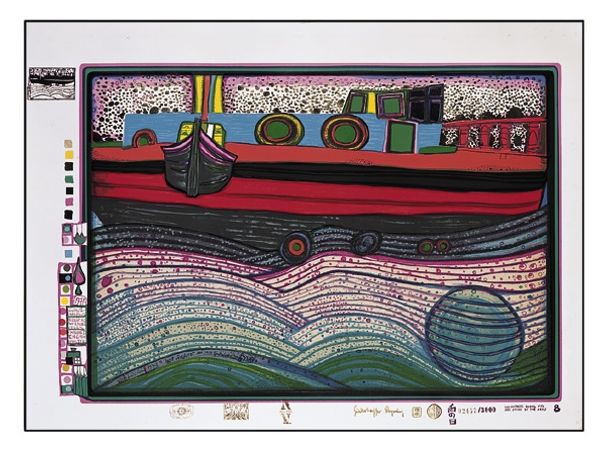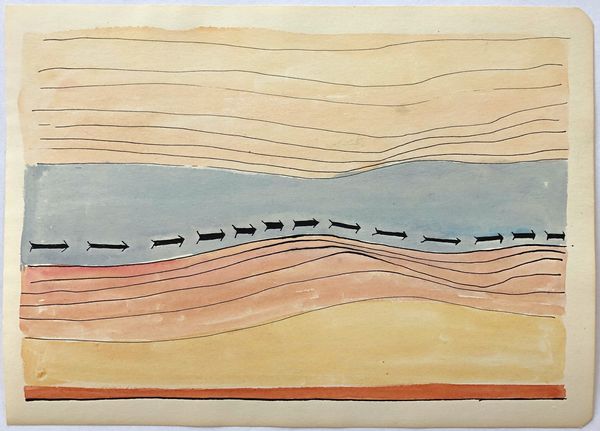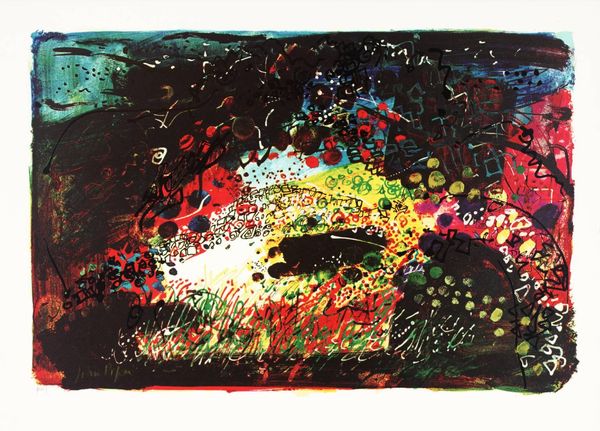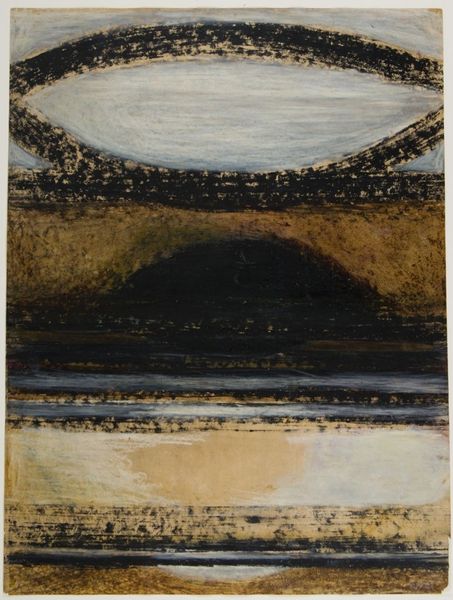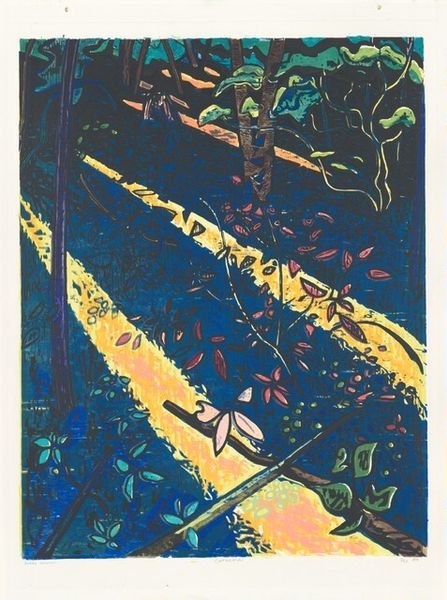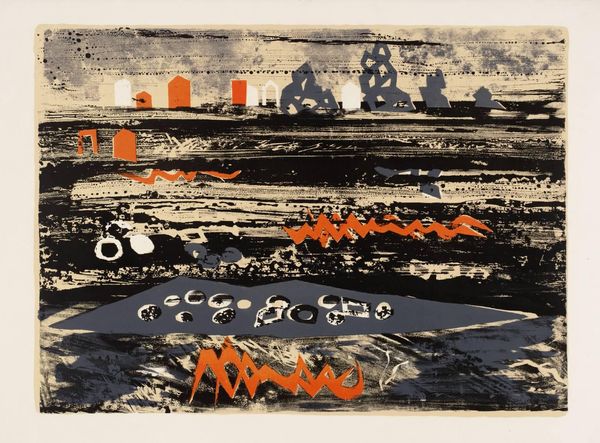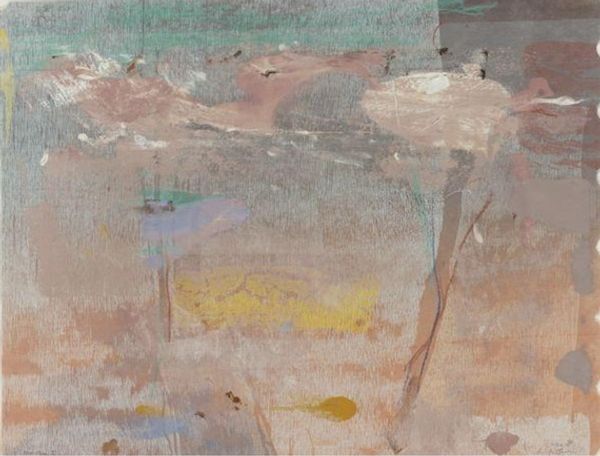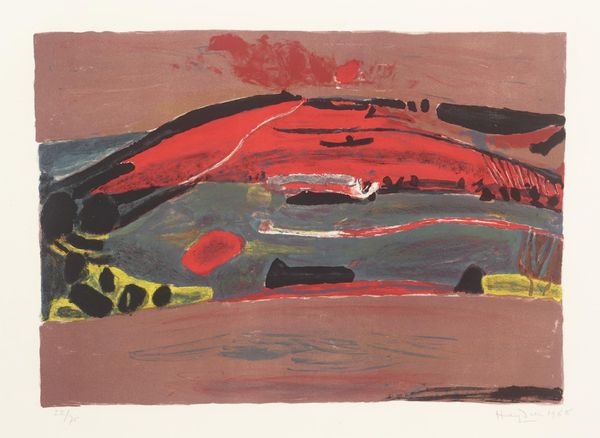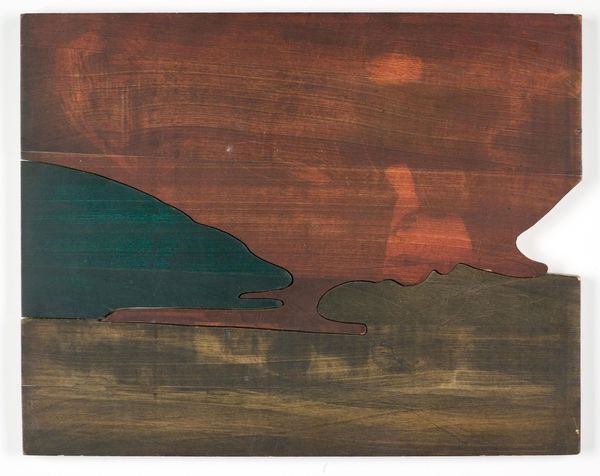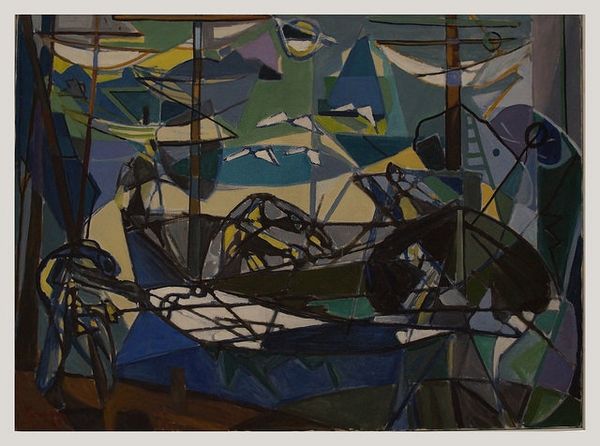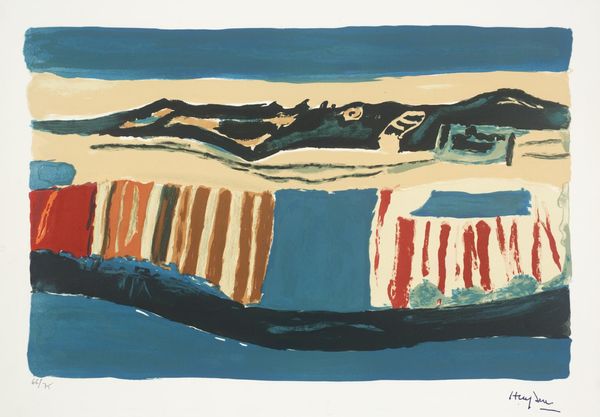
Dimensions: support: 571 x 781 mm
Copyright: © The Piper Estate | CC-BY-NC-ND 4.0 DEED, Photo: Tate
Curator: This is John Piper's "Coast of Brittany II," held in the Tate Collections. Notice the interplay of blues and browns. Editor: It’s a turbulent, almost gothic seascape—certainly not your typical sunny beach scene. Curator: Precisely. Piper's use of color blocking and texture creates depth while maintaining a flattened picture plane. The composition is really quite striking. Editor: I read this as a reflection on the tumultuous history of Brittany, a region marked by cultural resilience. Those dark colors evoke the somber mood of a place both beautiful and historically burdened. Curator: An interesting interpretation, though I'm more interested in how Piper uses abstract forms to evoke a specific place. The painting itself becomes a study in representation. Editor: Perhaps, but representation is always tied to the politics of place, isn't it? Curator: An endless debate, but regardless, Piper’s mark making remains a powerful visual experience. Editor: Agreed. It leaves you pondering the many layers beneath the surface.
Comments
tate 10 months ago
⋮
http://www.tate.org.uk/art/artworks/piper-coast-of-brittany-ii-t00488
Join the conversation
Join millions of artists and users on Artera today and experience the ultimate creative platform.
tate 10 months ago
⋮
In the summer of 1960 Piper worked on the coast of Brittany. On his return to Henley he made a group of large collages of which this is one. These collages are distinct in format and technique, using the dispersed paint to represent the horizontal lines of the open landscape, and cut marbled papers to represent particular features. These works demonstrate Piper's ability to translate his sensations from the natural world into a series of tones and colour harmonies. This particular collage also shows his continued interest in the colour techniques of the Fauves and of Raoul Dufy, whose work he had admired since the 1930s. Gallery label, August 2004
